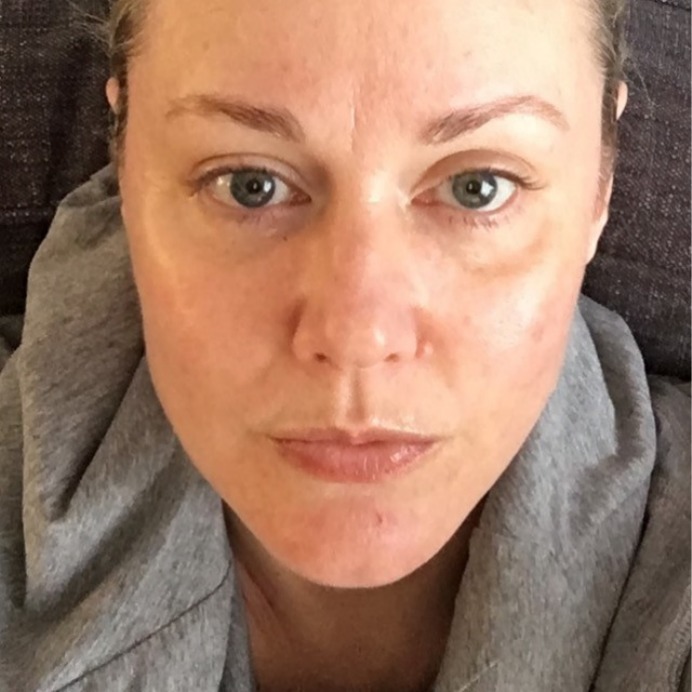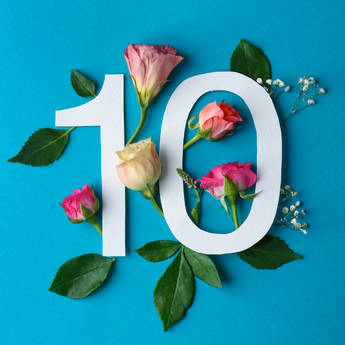
In this new, monthly column, senior writer and editor Adriana Ermter shares her personal experiences with breast cancer
By Adriana Ermter
Breast cancer prepared me for COVID. Actually, if I want to be really accurate, radiation prepared me for it and almost everything else that has come courtesy of the global pandemic.
After I was diagnosed with breast cancer, had a lumpectomy complete with the removal of multiple axillary lymph nodes, I opted for a course of treatment that included daily radiation. Looking back now, ironically, this was probably the best prep class a girl could ask for to train for the all-indoors-no-outdoors practice of napping, lounging and engaging in endless, often bleary-eyed, hours of Netflix programming. Most people now know this state of being as self-isolation complete with the hashtag #stayinside (and please do. Stay inside, that is. My immunocompromised friends and I thank you).
But 18 months ago, I just called it survival.
The New Normal
When I was undergoing radiation, my daily sessions typically occurred in the morning. The times varied, but because I wanted to get each session over and done with so that I could get back to living as quickly as possible—I’d requested A.M. over P.M. when my oncology team asked. In retrospect it was naïve of me to think this, but I had no idea of how impossible the task of returning to “normal” would be. But that’s cancer. You’re given a vague idea of what may or may not happen to you and how you can expect to heal and feel complete with booklets filled with pages containing lists of possible experiences and symptoms. No one on your medical team will put an actual pin in any of these items though, nor will they share definitive outcomes since no two carcinomas are exactly the same.
So while my medical team kept me as informed as possible, I also made a point of educating myself by reading every credible resource I could get my hands on (a skill I’ve carried over into COVID), as I tried to embrace my new, “huh, well, I guess I’ll wing it and see what happens,” mentality.
Radiation in RL
What happened was, me getting up early and going to work, then hunkering down in front of my computer until it was time to head to the hospital. Once there I’d check in and wait, sometimes two minutes, other times for hours for my turn to strip naked and lie perfectly still on a freezing cold narrow table while one radiation therapist acted like the nameless Google Maps voice, bellowing directions that corresponded to the navigation numbers identifying where the tumor and lymph nodes had lived in my body—all into a microphone from behind a glass wall.
This game of X marks the spot continued for several minutes as the second therapist pulled and pushed my body into position on said narrow table beneath a massive, metal, radiation machine. Using the four black dots permanently tattooed onto, below and on either side of my right breast, the therapist would lift my right breast up, then down, squish it to the left, nudge it to the right, back to the left and over and over again until, oh wait, my body shifted with the maneuvering…and the whole process would start from the beginning again until they’d secured my breast and my entire body in between a series of devices and padding.
Happy with my body and breast positioning, the second therapist would then scurry across the large and darkened room, throwing a “don’t move,” over his or her shoulder as they hustled through the heavy metal door and closed it behind them. I would lay contorted, trying hard not to breathe too deeply for fear of moving as the enormous radiation machine whirred into action rotating in circular motions over my body. Cramping muscles and what felt like hypothermia not included, the actual radiation beaming its high energy, x-ray-like protons and particles into my armpit and right breast, killing any leftover cancer cells my surgery may have missed was completely painless.
The COVID Connection
What was not, was the nausea I experienced pretty much all day, every day that no amount of ginger products could nip away. I did eat packages of Gold Fish cheddar-flavoured crackers, though. The salt seemed to help. Then there was the absolute, uncontrollable exhaustion that would hit me at random times. It was so hard to fight off or hide even, since I went back to the office after each treatment and tried to focus on my job. My workplace didn’t have disability and I’d already used all of my sick and vacation days with my surgery and its mandatory two-week recovery time.
Neither my then boss nor the company’s HR department had a solution for me, so I created one that included me fulfilling my regular projects on deadline. Who else was going to pay for my mortgage, food and the basics? Six months later though, with my body still suffering from the zero-energy impact of the cumulative effect of radiation and my mind on the brink of a melt down, I approached my employers again with an updated game plan. This time it included scaling back my days in the office and cutting my pay to accommodate the change.
COVID with its current employment instability, complete with some of my writing contracts temporarily (I hope) retreating reminds me of this time. I’m grateful that I’ve learned I can survive on a restricted income during uncertainty. This fact gives me hope and confidence and it has helped decrease my financial anxiety. So has the Government of Canada with programs inclusive of the Canadian Emergency Response Benefits that are helping contract workers like me, stay afloat. I wish there was something comparable for breast cancer patients so that none of us would have to work even one hour when we’re trying to emotionally cope and physically heal and survive.
When the Fog Isn’t Lifting
Having brain fog during treatment and for a solid year following the radiation was the most debilitating side effect of all. It zapped my memory, leaving me in a perpetually hazy state where I couldn’t remember if I’d completed a task or not. I could never find the right words I needed to say, which made me feel stupid and inarticulate. And most embarrassingly, I consistently forgot what I was talking about with my colleagues Carm and Naresh and mid-sentence I would have to ask them to remind me what I had just said. Luckily, these two big-hearted men were my biggest cheerleaders and got so used to filling in the blanks that for months they’d just step in and help me out the second the familiar confused look would wash across my face.
Eventually a doctor on my team prescribed a high dosage of daily B12 supplements to help recharge my batteries, reignite my cognitive skills, lift the fog clouding my head and memory bank, and cut down on the number of naps I was taking every day. It’s been a game changer, despite COVID having similar foggy effects.
I’ve since left my former job and amazing colleagues, but even if I hadn’t I’d still be sequestered inside my own four walls and can’t rely on anyone for reminders. Trixie the cat is cute and definitely meows loudly around meal times, but she’s way too into napping to be relied on for much else. So I write daily to-do lists and with a red pen, check off each task to help prevent Monday from sliding into Tuesday or Wednesday masquerading as Saturday. The random hits of exhaustion aren’t as frequent, they’re also no longer coupled with blinding headaches, but I do spend a lot of time under a blanket on the couch spooning my cat. My ability to concentrate on a book periodically relapses too and this is super frustrating because through breast cancer, I worked my butt off reading one sentence, one paragraph and one page at a time to rebuild my ability to concentrate and focus.
I’m grateful though, for all of these life skills, because that’s what they are. Couple them with my Netflix subscription (I didn’t have it during breast cancer, and yes, I was probably the last person in North America to finally sign on) with it’s hours worth of Ozark, Dead to Me and Mindhunter to keep me company, I’m doing better than I did in forced isolation just mere months ago. I can also breathe a masked sigh of relief every time I walk to and from the grocery store or on my daily power walk through the neighborhood. None of these things were possible for me when I was healing so this activity feels like a gift. And probably the most positive and heartfelt experience I’m reliving from my recuperation days is the ongoing and meaningful connections with my sisters and family in Calgary, along with my besties and the swim team of girls I coach in Toronto—all on Zoom chats and FaceTime. So while I may be isolated I never truly feel alone. Who knows, with dating apps’ current rush of popularity I may even have sparked a COVID friendship with romance potential of my own... Gives me something to look forward to on the other side of the unknown.
Adriana Ermter is an award-winning writer and editor. Her work can be read in Figure Skater Fitness, Canadian Hairdresser and IN Magazine, as well as online at 29Secrets.com, RethinkBreastCancer.ca, Popsugar.com and AmongMen.com. The former Beauty Director for FASHION and Editor-in-Chief for Salon and Childview magazines lives in Toronto with her very spoiled cat, Trixie-Belle. You can follow Adriana on Instagram @AdrianaErmter or on Twitter @AErmter






